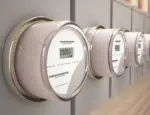
Electric meters are unstoppable in their constant measuring of consumed electricity. Your utility company, later on, sends a bill, based on those measurements. That is where the knowledge of most people about their electric meter ends. To learn more about how your household meter works, how to measure your electricity usage, and a comparison between cumulative and interval meters, read further.
One important fact to keep in mind is that your home’s energy meter is not part of your home property. Utility providers own the electric meter; hence those companies are responsible for maintaining, installing and reading recorded data. That is why any attempt to interfere with a meter’s work is not authorized.
So, how exactly does an electric meter work?
Most electricity meters come with a disk where multiple measurement spin as you use electricity, and kilowatt-hours get pulled from the grid, creating a new reading. Your utility company takes current and previous readings to determine energy usage and billing amount.
Basically, if you have a smart meter, it directly sends information about your current usage to utility companies by a cellular signal or radio waves. Meanwhile, an older meter requires a worker to come to your home and write down numbers. (Homes with a solar power system will require a replacement of an old meter for a new smart one.)
Read more about smart electric meters.
Considering that all kinds of electric meters should be approved by Measurement Canada (the Electricity and Gas Inspection Act), the accuracy of an electric meter is confirmed. Every utility company has to submit a prototype of any new meter for inspection. After it has been inspected and sealed, meters still get checked periodically for accuracy.
Cumulative Meters
Residential buildings, especially older houses, often choose cumulative meters that read once every two months. Cumulative meters also known as a mechanical (or traditional) type, require a meter reader to visit your place and record electricity usage numbers (The AER (Alberta Energy Regulator) and BC OGC). A month when electricity is not measured by a company representative, usage is estimated—which could cause under or overbilling. That is the main disadvantage of a mechanical electricity meter.
The lifespan of cumulative meters is about thirty years.
Interval meters
Interval meters, on the contrary, record electricity usage every 30 minutes. Those meters are electronic with a display that is programmed to show time, date and kilowatt hours. The interval meter reader works by downloading the 30-minute recorded data into a handheld computer. The information is sent to a system and further to the electricity retailer.
Such type of a meter allows easy tracking of the difference between electricity usage throughout the day. A main benefit of an interval meter is detailed information on the energy use, hence an opportunity to reduce electricity demand during certain hours. Electronic meters typically last from fifteen to twenty years.
What do electricity meters measure?
An electrical meter is designed to measure the usage of electricity. Installed in both commercial and residential buildings, meters count electricity in watts. (Watt is counted in voltage and amperage as 1 watt = 1 volt x 1 amp.)
Where are electricity meters located?
Typically, electric meters are located on an outer wall where the power line runs into your house. They could also be placed in the basement, garage, or utility rooms. Most likely the electric meter and the panel will be placed next to each other.
How to read electricity meters?
Although all those numbers on the meter might be confusing, it is fairly simple to read electricity meters. A number of kilowatt-hours (1s, 10s, 100s, 1000s and 10,000s) are displayed on a dial. To read your meter correctly start from the right and move to the left, then write down those numbers. (The pointer is between two numbers on the dial.)
When were electricity meters invented?
The electricity meter was patented in 1881. Thomas Alva Edison introduced an electrical distribution system proving that electricity can be sold and distributed just like gas.
The first electrical meter contained an electrolytic cell with a strip of copper placed at the beginning of the billing period. When the billing period was over, the copper strip was weighed one more time. The difference in the amount of electricity that passed through in the designated time frame, was recorded.
Later on, Edison added a counting mechanism for the convenience of meter reading.











